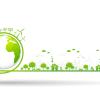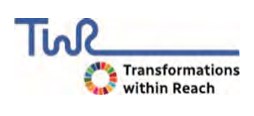
Science for Society Brief #1, May 2023. This brief presents insights from an event co-organized by the United Nations Development Programme (UNDP), the Austrian Academy of Sciences (ÖAW), and the International Institute for Applied Systems Analysis (IIASA) to mark the Austrian launch of the Human Development Report 2021-2022, Uncertain Times, Unsettled Lives: Shaping our Future in a Transforming World.
Despite warnings about human impacts on ecosystems, decades of insufficient action have heightened the risk of irreversible tipping points in the Earth’s systems. Current decision-making mechanisms are inadequate and the world is not on track to achieve the Sustainable Development Goals (SDGs), while geopolitical tensions and conflicts are derailing prospects for global cooperation on the challenges humanity faces. Although technological progress continuously presents new solutions and opportunities, there is a mismatch between what is needed and how society and institutions respond.
KEY MESSAGES
- There is a need for a greater focus on human agency, both as a means to navigate the Anthropocene and as an end in itself for holistic human development.
- Humanity’s collective challenge in the near future is likely to be whether to respond with enlightened agency or to double down on a race to the bottom resulting from constrained agency.
The UNDP’s Human Development Report (HDR) office and the IIASA Transformations within Reach (TwR) initiative are exploring possibilities to collaborate further to advance this research agenda on enhancing individual and collective agency to navigate the Anthropocene.
THE HUMAN DEVELOPMENT REPORT
The Human Development Report 2021-22 highlights an emergent uncertainty complex that is unsettling lives around the world today. This is reflected in:
- A drop in the global Human Development Index (HDI) for two consecutive years (for the first time on record), with over 90% of countries suffering a decline in either 2020 or 2021.
- Destabilized planetary systems of the Anthropocene.
- The pervasive rise in insecurity, negative expectations about the future, and mental distress.
- A vicious spiral of political polarization whereby uncertainty, inequality, and insecurity go hand in hand.
The key observations regarding the link between human development and agency are:
- Freedom and agency are key to both coping with uncertainty and catalyzing the social and economic transformations needed to navigate the turbulence of the Anthropocene.
- While multiple actors, ranging from researchers to policy-makers, have correctly emphasized a fulfilment of material needs as a core feature of human wellbeing, it should be seen as a stepping-stone to a more comprehensive conception of human development, which includes agency – in other words, the capability of individuals and groups to choose, take action, and change a course of events or outcomes.
- Constrained agency perpetuates unsustainability, reduces the richness of values and aspirations, and creates an illusionary contradiction between development and sustainability. Doubling down on material wellbeing alone as a means to enhance human development is yielding diminishing returns individually and is becoming increasingly more counter-productive in a resource-constrained world.
- Humanity’s collective failure is partly a result of skewed agency from a lack of gender equality. Supporting female entrepreneurs in particular, is shown to be effective in supporting collective action, agency, and economic development.
DO WE NEED AN INDICATOR FOR AGENCY? "Before changing what humans do, we need to understand humans and societies. Human development has two legs: one is wellbeing and other is agency. We have the Human Development Index for measuring and under-standing wellbeing, but we need a similar indicator and understanding of agency. This is why we want to collaborate with IIASA on this."
ENHANCING AGENCY
Sustainability transformations
- Despite multiple scientific warnings about human impacts on ecosystems, decades of insufficient action have heightened the risk of irreversible tipping points in the Earth’s systems. Our current decision-making systems are geared to propel unequal economic growth, concentrated wealth accumulation, and unsustainable consumption. Moreover, insufficient progress on fulfilling the SDGs has been further undermined by the COVID-19 pandemic, while geopolitical tensions and conflicts are derailing prospects for global cooperation on global challenges. Although technological progress continues to enhance our (creative and destructive) capabilities, there is a mismatch between current challenges on the one hand, and the response from institutions and the behaviors of actors on the other.
- It is becoming evident that technology alone along with existing institutional arrangements cannot respond and bring about a sufficient degree of change. Scaling up the transformation of our society to sustainability requires coordinated action of key actors. At the heart of the challenge is that current socioeconomic-environmental systems facilitate a skewed distribution of power and constrain the agency of many actors.
Industrial development and energy transition
- A new uncertainty complex highlighted in the HDR can be viewed as a cultural and structural emergent property (theorized by sociologist Margaret Archer). From the environmental history perspective, side-effects of the fossil-fuel based economy may have led to the uncertainty complex highlighted in the HDR, which now constrains the agency of all humans. This can be changed by changing the properties of structures. In this sense, energy transition can be a powerful tool to enhance agency.
- Industrial development must be inclusive and sustainable as a means to achieving human development, rather than industrial development being an end in itself.
- We must not frame climate policy as constraining agency. A well-designed climate policy must lead to improved agency. Transformation to sustainability will only be successful if the old system is replaced by a better one.
Digitalization to enhance agency
- Preferences and social norms can be shaped by giving people better options. This is where digitalization, if implemented well, can harness many co-benefits such as car-sharing options rather than car ownership.
- Digitalization may also be used positively to facilitate public discourse. For example, according to multiple surveys, an overwhelming majority around the world is concerned about climate change, but we are trapped in pluralistic ignorance. Most people think others are not concerned about climate change, and this is a barrier to action and agency. This is where technology can help to co-ordinate and unleash human agency.
- While harnessing technologies, we need to relearn to treat our machines for what they are: tools to boost our own agency, not masters to which we delegate our creativity and ability to act.
Institutions
- In addition to collective and individual agency, we need to consider proxy agency, meaning that individuals, in their role as representatives of institutions, can wield great influence. Support is needed for new types of organizations that facilitate positive actions through these proxy agents, while simultaneously harnessing the power of social learning to affect real societal change.
- Improving institutional capacity informed by context- dependent notions of justice and fairness is indispensable for enhancing agency to tackle challenges such as climate change mitigation.
- Polarization reduces collective agency. Investment in public spaces of discourse is crucial to fostering interconnectedness.
Who are the key agents of change?
- Change agents or social innovators are embedded at the interface of structure and agency. Large interventions in the public sector are indispensable to enabling change agents, and other actors need to provide legitimacy for change. We especially need to empower the change agents tackling inequality and poverty, as they simultaneously contribute to human development, enhance agency, and foster resilience to global warming.
- The empowerment of women is essential as an end in itself. In addition, it is a co-benefit for catalyzing economic and human development in general.
- Nutrition and healthy environments are preconditions for human agency. One example is the concept of ‘One Health’, conceived by the World Health Organization. Very capital-intensive measures to adapt to climate change may actually make societies more vulnerable to climate-change induced and other disasters. This calls for a more holistic conception of human development.
- With respect to the agency of scientists: we need to find new ways of synthesizing scientific insights and embedding science in decision making. At the same time, we need to avoid mixing ideology and science. While normative framing is inevitable, it should be transparent, and questions asked should not predetermine the answers. Science communication should focus on highlighting the trade-offs of different solutions rather than prescribing specific policy options.
International organizations and a multi-polar world
- International organizations are more relevant than ever in the current context of insecurity and uncertainty despite their imperfections and skewed power relations among countries, as they provide a platform for dialogue and building bridges. This also underscores a need to reform these institutions to tackle complex global challenges.
- It is essential to learn from successful examples of multilateral processes such as the Montreal Protocol.
- International climate negotiations have shown that there are mechanisms in place that bring countries together, and that the lack of progress is not because the UN framing is dysfunctional but rather because countries are polarized and in this multi-polar world, the role of the UN is both more difficult and more important.
FUTURE OF THE SUSTAINABLE DEVELOPMENT GOALS (SDGs)
- The SDGs have provided a great analytical tool and have popularized the conception of systemic change – it is easy to see the complex interactions and trade-offs among different goals.
- The SDGs have made a dramatic difference in changing and developing integrated perspectives. It has led governments to focus on actions such as women’s empowerment that synergize across different goals.
- Without the SDGs it would not be possible to monitor progress, and they have enhanced the reflective capacity of society. A greater focus on the interconnections between the SDGs is needed and topics such as war, addiction, and fossil-fuel dependency should be included.
- While the current SDGs are output focused, there is a need to focus more on processes especially in the context of the crisis in capitalism: institutional structures are failing, especially in the low-income countries. This would include questions such as how social welfare states can be sustained.
- Monitoring capacity has to be strengthened, particularly more accurate data gathering and processing.
ABOUT THE EVENT
The event took place on 22 February 2023 as part of the IIASA Transformations within Reach (TwR) initiative, which looks for ways to transform societal decision-making systems and processes to facilitate a transformation to sustainability. The opening remarks were delivered by Albert van Jaarsveld, IIASA Director General; Peter Huber, Director General, Federal Ministry for European and International Affairs of the Republic of Austria; and Christian Köberl, IIASA Council member for Austria. The event was moderated by IIASA Advancing Systems Analysis Program Director, Elena Rovenskaya, who also leads the Transformations within Reach initiative at IIASA.
SPEAKERS AND CONTRIBUTORS
Flash talks: Anja Appel, Director, Co-ordination Office of the Austrian Bishops’ Conference for International Development; Elina Brutschin, Research Scholar, IIASA; and Johannes Jaeger, Project Leader, JTF Project "Pushing the Boundaries".
Panel discussion: Pedro Conceicao (keynote), Director, Human Development Report Office, UNDP; Keywan Riahi, Energy, Climate, and Environment Program Director, IIASA; Cecilia Ugaz Estrada, Director, Gender Equity and Empowerment of Women Office UNIDO; and Verena Winiwarter, Full Member, Austrian Academy of Sciences
RELATED PUBLICATIONS
Patil, P., Rovenskaya, E., Srivastava, L., Gomez Echeverri, L., & Fath, B. (2022). First Background Paper for Transformations within Reach (Phase-2). Framework for Catalyzing Societal Transformations [Background Paper]. IIASA.
UNDP. (2022). Human Development Report 2021-22. UNDP (United Nations Development Programme).
IIASA Science for Society briefs report on research and engagement activities carried out by IIASA and have received only limited review. Views or opinions expressed herein do not necessarily represent those of the institute, its National and Regional Member Organizations, or other organizations supporting the work.
